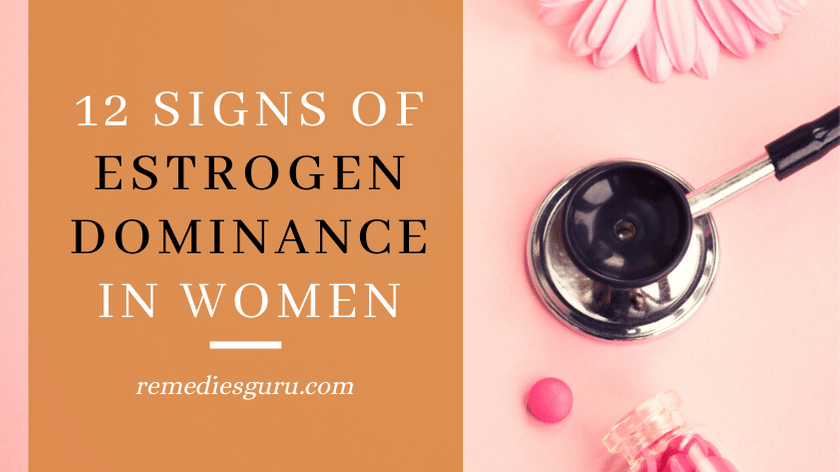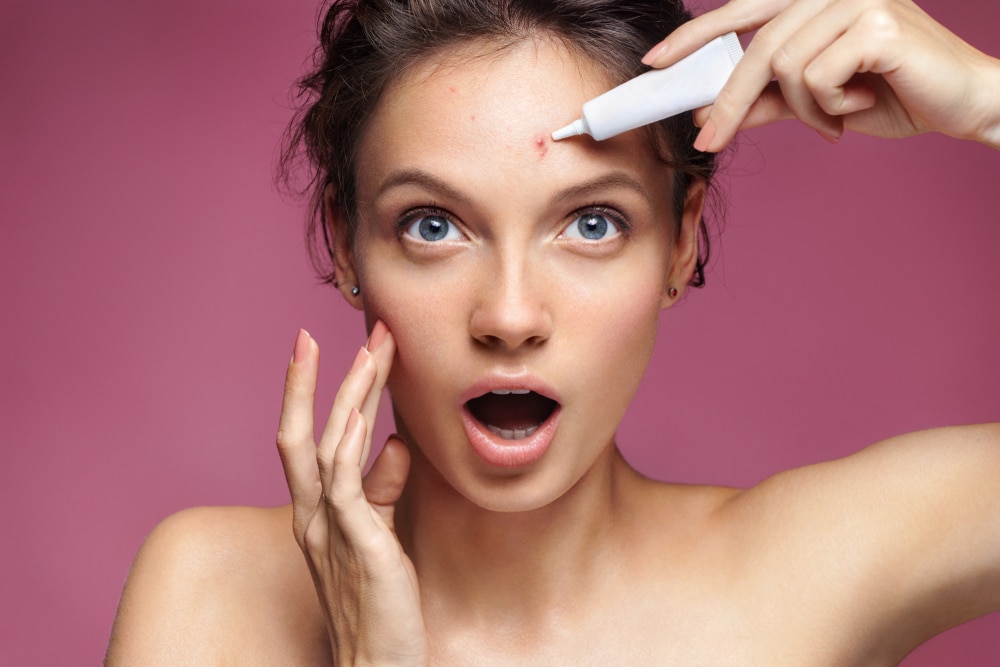
When it comes to female health, being vigilant is imperative. Especially during situations like a worldwide lockdown where access to medical facilities is limited. This means that every woman, regardless of her age, needs to pay attention to how her body responds to certain stimuli.
With that being said, sometimes an unhealthy lifestyle or a systemic condition can lead to an imbalance of the female hormones, which are detrimental to health. Estrogen dominance is one such factor that needs special consideration.
What Is Estrogen and its Dominance?
Estrogen is a female hormone. It helps in developing the female reproductive system as well as the secondary sexual characteristics such as breasts and pubic hair. It also regulates bone health and the cardiovascular system. Males also produce estrogen but in lesser quantities than females. It is often linked to progesterone when dealing with the female reproductive system.
Estrogen dominance, as the name suggests, is excess of the hormone estrogen in the body. There is no set metric of how much indicates a surplus but generally, the amount of estrogen is the same as compared to other sex hormones in the body.
What Is the Usual Range of Estrogen?
According to Mayo Clinic, the following levels are considered normal for women:
| Estrone | Estradiol | |
| Prepubescent female | Undetectable–29 pg/mL | Undetectable–20 pg/ml |
| Pubescent female | 10–200 pg/mL | Undetectable–350 pg/ml |
| Premenopausal adult female | 17–200 pg/mL | 15–350 pg/ml |
| Postmenopausal adult female | 7–40 pg/mL | <10 pg/ml |
- There are three types of estrogen: estrone, estradiol, and estriol.
- Estradiol is a primary female sex hormone, whereas estriol and estrone are minor.
What Causes Estrogen Dominance?
There are several causes that leads to estrogen dominance in the body. Some of them are discussed below.
Food
Our diet plays an integral part in our functioning. Foods that are manufactured synthetically or animals injected with artificial hormones to speed up their growth all contribute to estrogen excess when we ingest them. Other than that, any pesticide or herbicide that is sprayed on commercial products is also an additive factor in disturbing the hormone balance.
Personal Care Products
Many cosmetic items such as lotions, soaps, shampoos, etc. contain either steroidal or nonsteroidal estrogen. Environmental estrogen such as parabens and placental extracts are found in these products, which lead to increased exposure to the hormone.
Hormone replacement therapy and birth control
Hormone replacement therapy and most contraceptives have excess estrogen without the relative progesterone to maintain balance. The estrogen they have is synthetic and not quickly metabolized by our liver.
Stress
When you always remain stressed and anxious, our body breaks down progesterone to release a hormone called cortisol. And because the levels of progesterone then decline, it means that not enough of it is available to balance out estrogen, thus leading to estrogen dominance.
Obesity
Fat is seen to absorb estrogen in our bodies. It can also make estrogen from other hormones. And increased fat cells trigger our body to produce more estrogen, and this becomes a continuous loop.

12 Signs of Estrogen Dominance
Decreased Sex Drive
Excess of estrogen causes vaginal dryness and vaginal atrophy and, therefore, painful intercourse.
Mood Swings or Depression
Fluctuating hormone levels are linked to symptoms of depression. Estrogen is also known as the mood modulator. Hence, the irregular pattern of spiked and decreased hormones disturbs many processes in our brain and therefore makes us anxious.
Fatigue
Fatigue can vary from being mild to serious. Estrogen dominance can also be a trigger for adrenal fatigue due to varying hormone levels.
Weight Gain
Weight gain, especially around the belly and hip region, occur with hormonal imbalance. Unexplained increase in weight might be an indicator of estrogen excess.
PMS
Pre-menstrual syndrome(PMS) is directly linked with the amount of progesterone, estrogen as well as serotonin. An increase in these hormones causes irritability and mood shifts.
Trouble Sleeping
Estrogen dominance disturbs the production of melatonin. And due to less sleep, cortisol levels spike in response to the stress it causes, and over time it can lead to adrenal fatigue, which makes symptoms worse.
Swelling in Breasts
Many contraceptives that contain estrogen are linked to tenderness in breasts. This is due to fluctuating hormone levels.
Hairloss
Hair thinning or falling out is noticed in women with hormonal imbalance.
Fibrocystic Breasts
Changes in breast tissue are brought about by ovaries, which are controlled by hormones. A disruption in the balance of these hormones leads to breasts becoming tender, swollen, and painful.
Irregular Menstruation
The lining of the uterus is maintained with the help of estrogen and progesterone. If this is in excess, it can cause heavy bleeding.
Bloating
Bloating is when your abdomen feels as if it is filled up with gas. This is most commonly linked to fluctuating hormone levels within the body.
Thyroid Dysfunction
Excess of estrogen impedes the uptake of thyroid hormones, which then leads to hypothyroidism.
Final thoughts
Estrogen dominance is a potent concern nowadays, especially in pre and postmenopausal women. It has various signs which are relatively easy to detect; hence early identification can help manage it better.



















